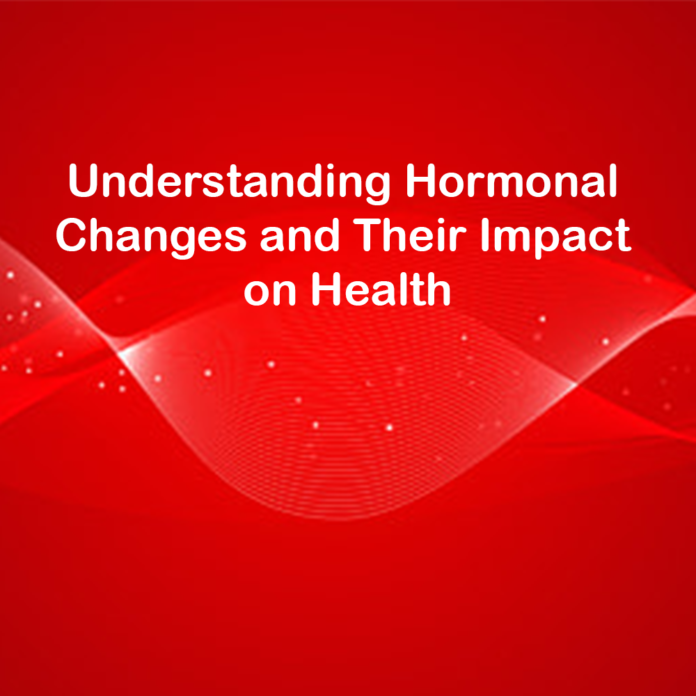
Hormones are crucial chemicals produced by the glands of the endocrine system. They serve as messengers, traveling through the bloodstream to regulate various bodily functions, from metabolism to mood. Hormonal changes can lead to numerous health issues, affecting overall well-being. This article explores the roles of hormones, what hormonal imbalances are, their symptoms, and potential treatments.
What is Hormonal Imbalance?
Hormonal imbalance occurs when there is either too much or too little of a hormone in the bloodstream. Given their essential functions, even minor changes can have significant impacts on health.
Symptoms of Hormonal Imbalance
Symptoms of hormonal imbalance vary depending on the hormone affected. Common signs include:
- Weight gain
- Fatigue
- Muscle weakness
- Joint pain
- Changes in heart rate
- Anxiety and depression
- Infertility
Causes of Hormonal Imbalance
Several factors can lead to hormonal imbalances, including:
- Chronic stress
- Poor diet
- Lack of exercise
- Certain medications
- Medical conditions such as diabetes, thyroid disorders, and PCOS
Hormonal Imbalance in Women
Women are especially susceptible to hormonal imbalances due to their complex reproductive systems. Conditions like menopause, perimenopause, polycystic ovary syndrome (PCOS), and irregular menstrual cycles can result in significant hormonal shifts.
Treatment for Hormonal Imbalance
Treatments for hormonal imbalance depend on the underlying cause and may include:
- Hormone replacement therapy (HRT)
- Medications for specific symptoms
- Dietary and lifestyle modifications
- Supplements and herbal remedies
Menopause: Symptoms, Causes, and Management
Menopause signals the end of a woman’s reproductive years, characterized by a significant decline in hormone production, particularly estrogen and progesterone.
Perimenopause and Menopause
Perimenopause is the transition leading to menopause, often marked by irregular menstrual cycles and hormonal fluctuations.
Symptoms of Menopause
Common symptoms during menopause include:
- Hot flashes
- Night sweats
- Mood swings
- Vaginal dryness
- Weight gain
Hormonal Changes During Menopause
The decrease in estrogen and progesterone during menopause can result in various physical and emotional symptoms.
Hormone Replacement Therapy
Hormone replacement therapy (HRT) may alleviate menopause symptoms by restoring hormone levels, but it is essential to discuss potential risks and benefits with a healthcare provider.
Thyroid Hormones: Functions and Disorders
The thyroid gland is vital for regulating metabolism, energy levels, and overall health.
Thyroid Hormone Levels
Maintaining balanced thyroid hormone levels is crucial. Common disorders include hypothyroidism (underactive thyroid) and hyperthyroidism (overactive thyroid).
Symptoms of Hypothyroidism
Symptoms may include:
- Fatigue
- Weight gain
- Cold intolerance
- Dry skin
- Hair loss
Treatment Options for Thyroid Issues
Managing thyroid conditions may involve:
- Medication to normalize hormone levels
- Radioactive iodine therapy
- Surgery in severe cases
Understanding Reproductive Hormonal Changes
Reproductive hormones like estrogen, progesterone, testosterone, and androgens play essential roles in sexual development and overall health.
Estrogen and Progesterone
These hormones regulate the menstrual cycle and support pregnancy.
Testosterone and Androgens
Testosterone is also present in females, influencing muscle mass, bone density, and libido.
Polycystic Ovary Syndrome (PCOS)
PCOS is a common condition in women of reproductive age, characterized by irregular periods, elevated androgen levels, and polycystic ovaries, which can lead to infertility.
Infertility and Hormonal Imbalance
Hormonal imbalances can contribute to infertility. Balancing hormones may improve fertility outcomes.
Lifestyle Factors Affecting Hormonal Health
Lifestyle choices significantly influence hormonal health. Key factors include:
- Diet
- Exercise
- Stress management
Weight Gain and Hormone Imbalance
Weight gain can both result from and cause hormonal imbalances. Maintaining a healthy weight through balanced nutrition and regular exercise is essential.
Dietary and Lifestyle Changes for Hormonal Health
Incorporate these tips to manage hormonal imbalances effectively:
- Eat a balanced diet rich in whole foods
- Exercise regularly
- Manage stress through techniques like meditation or yoga
- Ensure adequate sleep to support hormonal regulation
The Endocrine System: Glands and Hormones
The endocrine system consists of glands that produce hormones. Key glands include:
- Pituitary gland
- Thyroid gland
- Adrenal glands
- Pancreas
- Ovaries (in women)
- Testes (in men)
Blood Tests for Hormone Levels
Blood tests can diagnose hormonal imbalances by measuring hormone levels in the bloodstream. Common tests include:
- Thyroid function tests
- Sex hormone levels
- Cortisol levels
Female-Specific Hormonal Imbalances
Women experience unique hormonal changes throughout their lives, particularly during the menstrual cycle.
Hormonal Imbalance During the Menstrual Cycle
Hormonal fluctuations can lead to symptoms like PMS, mood swings, and cramps.
Hormonal Acne and Skin Health
Hormonal acne is common during puberty and the menstrual cycle. Maintaining hormonal balance can improve skin health.
The Connection Between Hormones and Mental Health
Hormones significantly impact mental health. Imbalances may lead to anxiety, depression, and mood swings.
Cortisol and Stress Response
Cortisol, known as the stress hormone, can elevate due to chronic stress, leading to various health issues.
Managing Hormonal Imbalances for Better Mental Health
Effective management of hormonal imbalances can enhance mental health. Consider:
- Stress reduction techniques
- Therapy and counseling
- Medications as prescribed by a healthcare provider
Common Symptoms of Hormonal Imbalance
Hormonal imbalances may manifest as:
- Fatigue
- Mood swings
- Weight changes
- Skin issues
- Reproductive problems
Understanding Hormone Replacement Therapy
HRT treats hormonal imbalances by replenishing deficient hormones. It is often used during menopause to relieve symptoms.
Causes and Treatment of Hormonal Imbalances
Identifying the causes of hormonal imbalances is crucial for effective treatment. Common causes include:
- Medical conditions
- Stress
- Poor lifestyle choices














